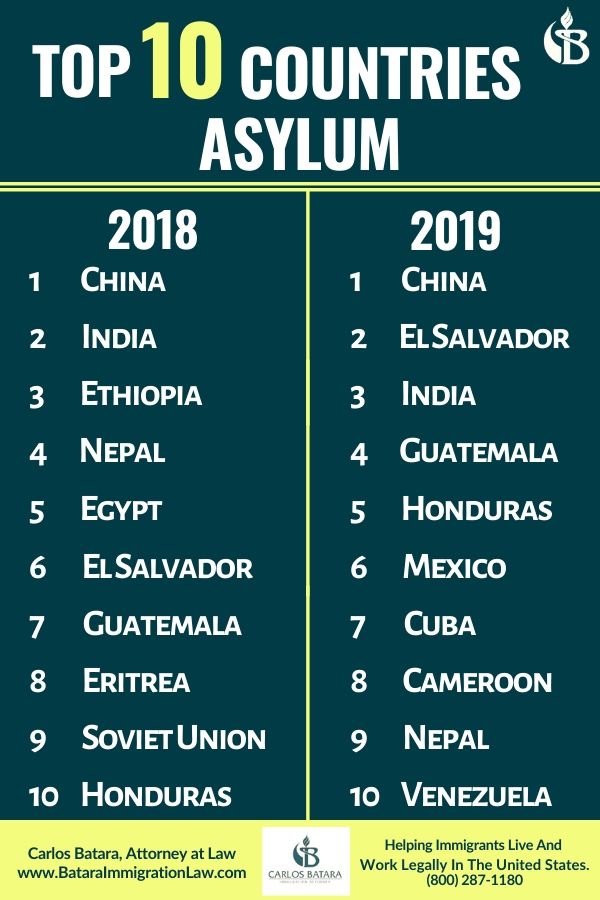
If you are afraid to return to your home country
We’ll help you fight to start a new life
For most immigrants seeking asylum, the United States is not just a land of opportunity.
It represents freedom.
-
- Perhaps you seek protection from extreme abuse and discrimination because of your ethnic origins, gender, or sexual orientation.
- Maybe you seek shelter from retaliation, imprisonment, or physical harm due to your religious beliefs or your personal characteristics.
- Or you may need refuge from the threat of death because of your political opinions or your membership in a particular organization.
The stakes are high.
If you lose, you will be forced to return home and face exposure to great harm.
If you win, you have the chance to become a lawful permanent resident and later, apply for naturalization to U.S. citizenship.

Winning Your Asylum Case Is Difficult
Asylum cases are a special type of immigration attorney services.
Immigrants seeking asylum come from countries across the globe.
In 2019, the largest number of immigrants granted asylum in the U.S. were from China, El Salvador, India, Guatemala, Honduras, Mexico, Cuba, Cameroon, Nepal, and Venezuela.
But these are not the only countries with asylum-seekers.
Everyday, in countries across the globe, people live in daily fear for their lives and the lives of their family members. They have to escape their home countries and and try to begin a new life in another country.
As the need for asylee and refugee protection has increased, the requirements for winning asylum cases have grown stricter. It is not enough to just be a member of a minority political party, disliked ethnic group, or disfavored religion.
To Win Asylee Status, You Must:
Prove your fear of persecution by the government in your home country
Ordinary harassment and discrimination is rarely, if ever, enough to meet this requirement. But various types of harm, when added together, may equal persecution. For example, you may have been prevented from obtaining work, stopped from attending higher education, forced to live in unhealthy living conditions, deprived of your right to privacy, or made into a social outcast.
Demonstrate a strong likelihood of harm
If you can show you will be harmed by the police or army, your asylum application stands a strong chance of being granted. You can also prevail if you can prove that you will suffer persecution by political zealots or religious groups that your home country’s government is unable or unwilling to control.
Show your exposure to persecution is related to specific conditions
In particular, to win your asylum case, you must be able to prove the harm you will face is directly related to at least one of five conditions: your race, religion, nationality, political opinion, or membership in a particular social group. The social group category refers to abuse due to certain personal characteristics such as your gender, sexual identity, or HIV status.
Two Roads To Asylum – Asylum Applications And Deportation Defense
There are two roads to asylum.
(1) The First Road – USCIS Asylum Interviews
The first road takes you to an interview with a government officer. This is called an “affirmative” application.
As your lawyer for a green card through asylum, a special immigration program, we will help guide you through this immigration process. We send your asylum paperwork to the U.S. Citizenship and Immigration Services (USCIS) office which handles asylum cases for the area where you live.
Since most of our clients live in Southern California and Arizona, their cases are handled at the USCIS Asylum office in Anaheim, California. However, we have handled cases for asylum seekers throughout the U.S.
After your fingerprints are taken, a date is set for your asylum interview. At your interview, a USCIS officer will decide whether to approve or deny your asylum application.
(2) The Second Road – Immigration Court, Asylum Defense, And Asylum Appeals
The second road takes you to immigration court. You will need to present your asylum claim to a judge. If you lose, the immigration judge will order you to be deported. This is known as a “defensive” asylum application.
You do not start these types of cases. The government starts the immigration process. This happens (a) if your affirmative application is denied by a USCIS officer after your asylum interview or (b) if you are detained by immigration agents because you do not have legal documents to live in the United States.
The government refers your case to immigration court. These are known as removal hearings. At court the government attorney asks the immigration judge to deport you.
At your hearings, even if your asylum case was denied by a USCIS officer, you can start over. You can ask for asylum again. You can present new evidence.
And if the judge decides against your asylum claim, you are entitled to file an immigration appeal challenging the decision.
You should not try to handle your asylum-based deportation and removal defense case on your own. The odds are stacked against you.
Some studies have shown that nearly 70% of all asylum cases at immigration court are denied.
For those immigrants without lawyers, according to recent studies, 93% lose their asylum cases.
This is not a risk you should take, if you are serious about restarting your life over here in the United States.
How We Handle Asylum Cases
Our approach to asylum law is guided by three principles.
Every asylum case is different.
Our experiences presenting and defending asylum applicants has demonstrated that no two asylum claims are the same.
Even if the asylum seekers are from the same country, faced persecution for the same reasons, or are members of the same family, same religion, or same political party.
Your asylum and refugee attorney must be able to develop a close working relationship with immigrants from many unique cultures. Without this type of personal connection, your lawyer will not be able to gather the personal and family history needed to win your asylum case.
Every asylum case requires an understanding of international affairs.
Your asylum lawyer should understand the political and social conditions of nations which cause asylees and refugees to flee for their safety. This is not something which can be learned overnight.
It takes many years to grasp the causes of ethnic rivalries and political disputes around the world – and to be able to demonstrate the key factors to an immigration judge or officer as part of your asylum case.
Every asylum case requires specialized knowledge of immigration law.
Asylum law has developed almost independently from other areas of immigration law.
In many instances, asylum cases rely more heavily on the ability to bring together different pieces of evidence, from outside the United States, to prove why an immigrant deserves to be granted the right to live in the United States.
Because many new applications for asylum protection are filed each year, asylum law continues to tighten. These changes impose new obstacles for asylum seekers. Only immigration specialists, with an interest in international affairs, keep up with the many changes to asylum law on an ongoing basis.
Ready to take a serious and honest look at the strengths and weaknesses of your immigration case? Let’s get started with a personalized strategy and planning session . . .




